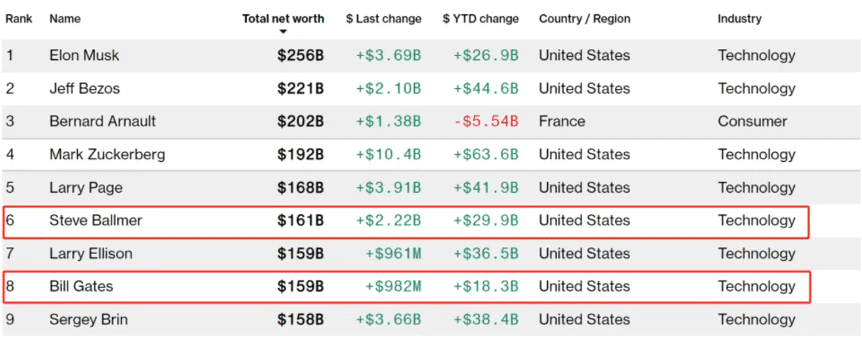
Argentina's government reform bill officially takes effect: granting the president special powers in areas such as administration
On the 8th, the Argentine government promulgated the "Foundations and Starting Points for Argentine Freedom" comprehensive bill and a package of fiscal measures, marking the official entry into force of the government reform bill. According to the official gazette of the Argentine government, Argentine President Milley, Chief Cabinet Minister Guillermo Francos and Economy Minister Luis Caputo jointly signed Decrees No. 592 and No. 593 to promulgate these two new reform measures. The comprehensive bill declared Argentina to enter a one-year public emergency in the administrative, economic, financial and energy fields, and granted the president special powers in these fields. It also includes the relaxation of economic regulations, labor reforms and the implementation of a large-scale investment incentive system. The package of fiscal measures involves anti-money laundering, tax deferral, tariffs, re-imposition of high-salary income tax and reduction of personal property taxes. On June 28, after six months of negotiations, the two reform bills were finally passed by the Argentine Congress.

MOFCOM refutes EU comments on anti-subsidy investigation into Chinese EVs
A spokesperson for the Ministry of Commerce (MOFCOM) on Monday rejected remarks from the EU Ambassador to China on the anti-subsidy investigation into Chinese electric vehicles (EVs). MOFCOM said China had expressed strong opposition through various channels since October 2023 and has always advocated for handling economic and trade frictions through dialogue and consultation in order to maintain the overall strategic partnership between China and Europe. EU Ambassador to China Jorge Toledo claimed on Sunday that the EU has been trying to engage with China for months regarding the imposition of tariffs on Chinese EVs but that China had only recently sought to initiate discussions. This is false, the spokesperson said. MOFCOM said that after the European Commission (EC) officially filed a case, Chinese Commerce Minister Wang Wentao sent a letter to European Commission Executive Vice-President Valdis Dombrovskis on October 24, 2023, expressing hope to resolve the case through dialogue and negotiation. On November 13, 2023, Wang sent another letter to the European side proposing negotiation suggestions. In February 2024, Wang met with Dombrovskis during the WTO's 13th Ministerial Conference face to face and proposed dialogue and negotiation with the European side. On May 19, 2024, Wang reiterated the hope for dialogue and negotiation to resolve the case in a letter to the European side. Additionally, Chinese technical experts have been sending signals to the European side regarding on-site inspections, hearings, and other channels since the case was filed, expressing willingness to resolve trade frictions through dialogue and negotiation. On the day the preliminary ruling was announced on June 12, Dombrovskis replied to Wang in a letter, expressing the desire for both sides to strengthen dialogue to resolve the case. On June 22, Wang held a video conference with Dombrovskis, and they agreed to start negotiations on the EU's anti-subsidy investigation into Chinese EVs. Subsequently, China sent a working group to Europe for negotiations on June 23, and multiple rounds of technical consultations were held simultaneously via video. MOFCOM said that China has shown the utmost sincerity and hopes that the European side will meet China halfway, show sincerity, and push forward the negotiation process to reach a mutually acceptable solution as soon as possible. China has always believed that trade protectionist measures are not conducive to the development of global green industries and automotive industry cooperation. Efforts should be made to adhere to dialogue and cooperation to promote economic green transformation, rather than creating divisions and disrupting global industrial and supply chains, MOFCOM said. China firmly opposes any unilateralism and protectionism that politicizes and weaponizes economic and trade issues, and will take all necessary measures to defend its own interests against any abuse of rules and suppression of China, MOFCOM added.

Poland and Ukraine sign bilateral security agreement
On July 8, Ukrainian President Zelensky, who was visiting Poland, and Polish Prime Minister Tusk signed a bilateral security agreement in Warsaw, the capital of Poland. The agreement clearly states that Poland will provide support to Ukraine in air defense, energy security and reconstruction. After signing the agreement, Tusk said that the agreement includes actual bilateral commitments, not "empty promises." Previously, the United States, Britain, France, Germany and other countries as well as the European Union signed similar agreements with Ukraine.

Porsche AG reports sharp fall in China deliveries
July 9 (Reuters) - German sportscar maker Porsche (P911_p.DE), opens new tab said on Tuesday that global vehicle deliveries were down 7% in the first half of the year compared to the same period in 2023, primarily driven by a 33% year-on-year drop in China. Porsche, majority-owned by Volkswagen (VOWG_p.DE), opens new tab, is highly exposed to the EU-China tariff tensions, with deliveries to China accounting for nearly 20% of global deliveries. An HSBC analyst pointed to weakness in the European car market, saying that "the market is, understandably, worried about China pricing weakness and the prospect of needing to pay dealer compensation." Overall, Porsche delivered 155,945 cars worldwide during the first six months of the year. In North America, deliveries were down 6% year-on-year. Meanwhile, in Porsche’s home market of Germany, deliveries increased by 22% to 20,811 vehicles.

How to evaluate the product impact of the iPhone 16
At the Apple Developer Conference held earlier, the iPhone 16 series will be equipped with iOS 18 has been revealed. At the event, Apple showed off a series of convenient interactive experiences brought by Apple Intelligence, including a more powerful Siri voice assistant, Mail app that can generate complex responses, and Safari that aggregates web information. These upgrades will no doubt make the iPhone 16 line even more attractive. In order to use Apple Intelligence, a new feature of iOS 18, the iPhone 16 and 16 Pro series are equipped with A18 chips. An external blogger found in Apple's back end that the iPhone 16 series will use the same A-series chip, and the back end code mentions A new model unrelated to the existing iPhone. It includes four iPhone 16 series models, and the four identifiers all start with the same number, indicating that Apple is attributing them to the same platform. The new iPhone will have a stainless steel battery case, which will make it easier to remove the battery to meet EU market standards, while also allowing Apple to increase the density of the battery cell in line with safety regulations.





